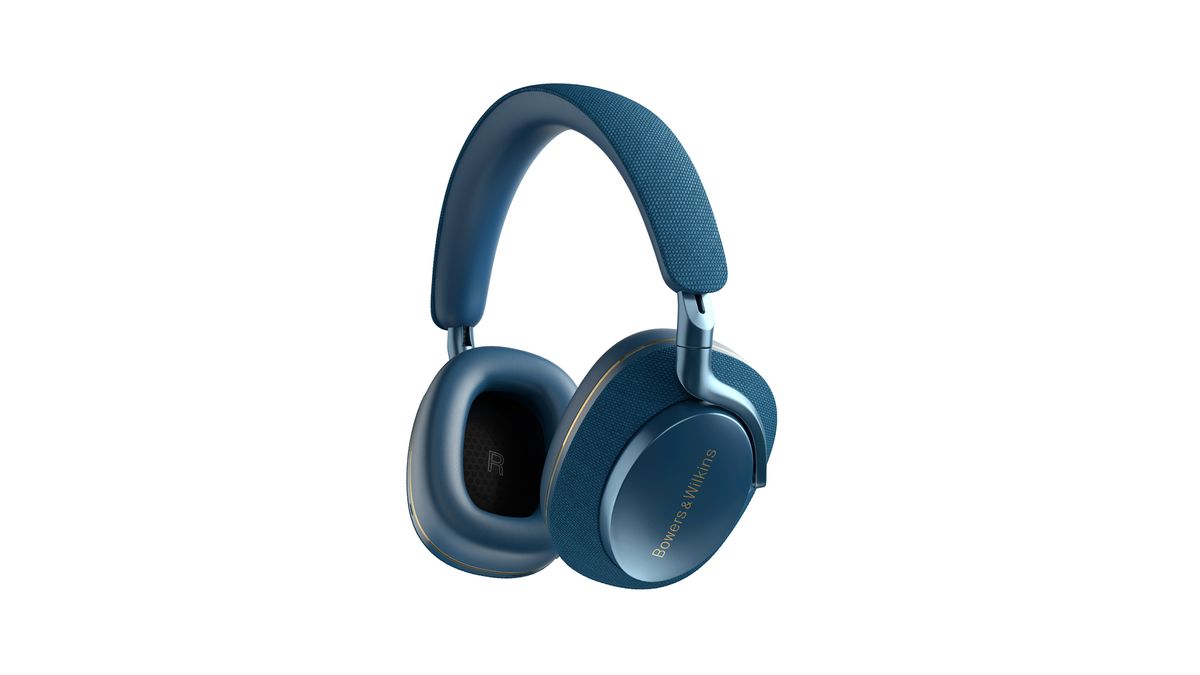What Hi-Fi? Verdict
A stylish pair of wireless ANC over-ears, backed up by a forthright, detailed and analytical sound
Pros
- +
Insightful, clean, focused sound
- +
Taut bass
- +
Premium build
Cons
- -
Up against some tough competition
- -
No mini jack input
Why you can trust What Hi-Fi?
UPDATE: The B&W PX7 S2 has been replaced by the PX7 S2e. The older model is still available and you can scroll down to read our original review, but we recommend that you check out our B&W PX7 S2e review and our guide to the best wireless headphones available right now.
It’s never ideal to be upstaged by a younger, more expensive model at your own party. But when Bowers & Wilkins first announced the latest generation of its high-end wireless noise-cancelling headphones, the Px7 S2, curiously it also chose to reveal that an even better, pricier, “no-holds-barred” Px8 pair would be released a few months later in the year (spoilers: they got five stars), rather undermining the premium cachet of its former flagship.
We might then have expected the Px7 S2 to be merely an iterative cosmetic update with little to impress us sonically. But, as it turns out, they put in an accomplished and precise hi-fi performance with significant upgrades from 2020’s Px7, offering an analytical, if not the most entertaining, alternative to the current class leaders.
Price
Priced at £379 / $399 / AU$600, the Px7 S2 occupies what was not so long ago considered the top tier for most consumer headphones – before the likes of the much pricier Apple AirPods Max, Focal Bathys and the new flagship B&W Px8 came onto the scene.
Still, the Px7 S2 remain at the premium end and similar in price to Sony’s latest release from its What Hi-Fi? Award-winning series, the WH-1000XM5 (£380 / $399 / AU$550). The Sonys set the benchmark that these B&Ws will hope to near or surpass.
Design and comfort
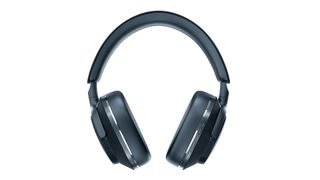
Outwardly the most significant departure for the Px7 S2 from its predecessor is a shift away from smooth ovoid earcups to a less bulky, chamfered build that looks remarkably similar to the original PX headphones that were released in 2017. This could perhaps be related to a return to a 40mm driver after stepping up to a 43.7mm diameter for the previous generation.
This retro redesign shaves 3cm off the overall dimensions of the headphones. But generally, they retain a similar aesthetic with a moisture-repellent fabric covering the headband and outer shells and a C-shaped yoke that allows 180 degrees of horizontal rotation.
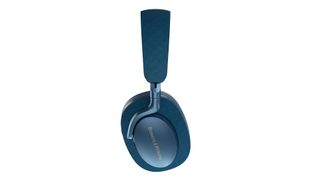
The race car-inspired carbon fibre arms of the last iteration have been replaced with a matte plastic composite that counterintuitively has a more luxurious finish and, depending on the colourway, gold or silver accents separate the shell from the memory foam cups. These touches subtly produce a more premium and, dare we say, mature look that’s a nice contrast to some of the more overtly plastic models currently available.
Despite the more compact casing, the weight of the Px7 S2 has only dropped slightly by 3g to 307g. They sit snugly, forming a good seal around the ear with the clamping force on the firmer side compared to the WH-1000XM5. Those with long hair may need to be wary of getting entangled in its swivelling yoke, but wearing the Px7 S2 for long periods is still extremely comfortable.
Internally there has also been something of an overhaul. The new 40mm drivers are combined with a voice coil that has increased by 5mm to 20mm. Constructed from bio-cellulose with a rigidity-improving resin coating, the drivers are steeply raked to ensure a consistent distance relative to the listener’s ear from every point across the surface of each driver.
Features
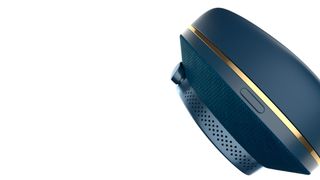
As with previous models, on the left earcup is a quick-action button that toggles between three noise cancelling settings – on, passthrough or off – and can also be reassigned in the app for voice assistant activation. B&W has upgraded its ANC technology to use six microphones: two measure the output of each drive unit, two react to ambient noise from the outside world, and two aim to boost voice clarity while suppressing noise.
Generally, the Px7 S2 put in a strong noise-cancelling performance, with consistency and minimal sound colouration across the different settings. Low droning noises, such as those you hear when onboard a train, are well rejected, though we find that higher frequencies – including vacuum cleaners or even birdsong – creep through to a greater extent than they do through the WH-1000XM5.
The right earcup, meanwhile, houses a slider switch for power and Bluetooth pairing, playback controls and a USB-C port for charging and wired playback. Bowers & Wilkins has decided to remove the 3.5mm jack input of previous models and instead chosen to include a mini jack to USB-C cable as well as one for USB-C to USB-C.
The Px7 S2 don’t support passive audio, though, and must be charged up and powered on even for cabled listening. B&W claims the headphones have 30 hours of battery life with noise-cancelling on, and a 15-minute recharge tops up seven hours of additional listening time. We find that to be an accurate representation, with three hours of listening resulting in a battery drop of 3 per cent.
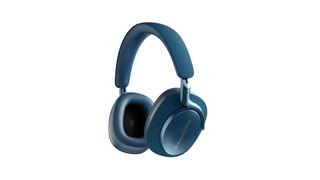
Inputs Bluetooth 5.2, USB-C
Bluetooth codecs aptX Adaptive, aptX HD, AAC, SBC
Battery life 30hrs
Charging USB-C
Transparency mode Yes
Built-in mic and controls Yes
Finishes Black, Blue Grey
Weight 307g
Of course, B&W expects most users to listen to music over Bluetooth. The Px7 S2 have Bluetooth 5.2 with support for SBC, AAC, aptX, aptX HD and aptX Adaptive codecs (the same as the Px8), the latter three of which provide Android devices with a higher-quality (though still lossy) wireless connection. For those who watch or play games on their phone, aptX Adaptive can be particularly useful as it allows dynamic bit-rate variation to avoid connection issues in congested wireless environments.
Rather than the dedicated Headphone app that previous B&W headphones used, the new Px7 S2 connect directly to B&W's Music app, which is also used for the company’s wireless speakers and, thanks to a recent update since the pricier Px8's launch, makes it possible to playback music from integrated music streaming services such as Tidal, Qobuz and Deezer within the app.
As well as functionality controls, the app also includes, for the first time on B&W headphones, an optional EQ setting with bass and treble sliders that lets users customise the sound to their taste.
Sound
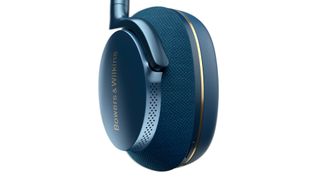
While we’re always happy to have the option to tweak, we find no cause to alter the sonic balance of the Px7 S2. Streaming And She Was by Talking Heads, we’re impressed by the tautness and dexterity of the bass guitar and kick drum, which integrate effortlessly into a smooth lean midrange and a top end that’s sweeter and more refined than that of the earlier Px7. This track is all about vibrant punch and attack. From the picked electric guitar in the verse to the repetitive synth trill in the bridge to the insistent cowbell in the chorus, the Px7 S2 deliver this deluge of transients with crisp acuity.
Perhaps it's because of those angled drivers that sonically, the Px7 S2 always feel extremely forthright. There’s a directness to Dusty Springfield’s Breakfast In Bed that gives a greater sense of proximity to the coy vocal as well as the rhythmic intensity of the arrangement. Compared to the older Px7, which tonally emphasise the background hiss on the track, they’re more neutral and composed, to the point of being analytical.
Switching to the Et In Carnatus Est and Sanctus from Mozart’s Grosse Messe, the Px7 S2 prove to be insightful and dynamically skilled as the music shifts from a solo voice and wind trio to a thunderous full choir and orchestra. Every instrument is well rendered and elegantly separated, but there is a slight lack of enthusiasm compared to the more spacious and buoyant Sony WH-1000XM5.
Verdict
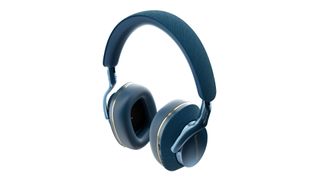
The Px7 S2 are a clear step forward for B&W, offering a more sophisticated, neutral and detailed sound. These are headphones that really prompt the listener to dig in and analyse their music.
Some of the best wireless headphones in competition, such as the leaderboard-topping Sony WH-1000XM5, are arguably more engaging, but the Px7 S2 are still an excellent and stylish alternative for those who enjoy attentive listening.
SCORES
- Sound 5
- Build 5
- Features 5
MORE:
Read our review of Sony WH-1000XM5
Also consider the Sennheiser Momentum 3 Wireless
Read our Bose Noise Cancelling Headphones 700 review
Our pick of the best ANC headphones you can buy
What Hi-Fi?, founded in 1976, is the world's leading independent guide to buying and owning hi-fi and home entertainment products. Our comprehensive tests help you buy the very best for your money, with our advice sections giving you step-by-step information on how to get even more from your music and movies. Everything is tested by our dedicated team of in-house reviewers in our custom-built test rooms in London, Reading and Bath. Our coveted five-star rating and Awards are recognised all over the world as the ultimate seal of approval, so you can buy with absolute confidence.
-
bogman I have tried these. Sound may be great, but Noise Cancelling is not. Noticeably worse than Bose QC45. And when used on noisey public train you get random screetching/squeaking sounds generated by some kind of bug in the algorithms. Really disappointing from B&W.Reply
The app is also quite buggy and disappointing.
Definitely not a 5* product for me. -
mordaha I've had these in carbon version twice (now it's my second pair)Reply
Really good sound and design, but they life lasts exactly one year, after one year right speaker breaks down:sneaky: Both of mine headphones did it. Each. After exactly one year :sneaky:
